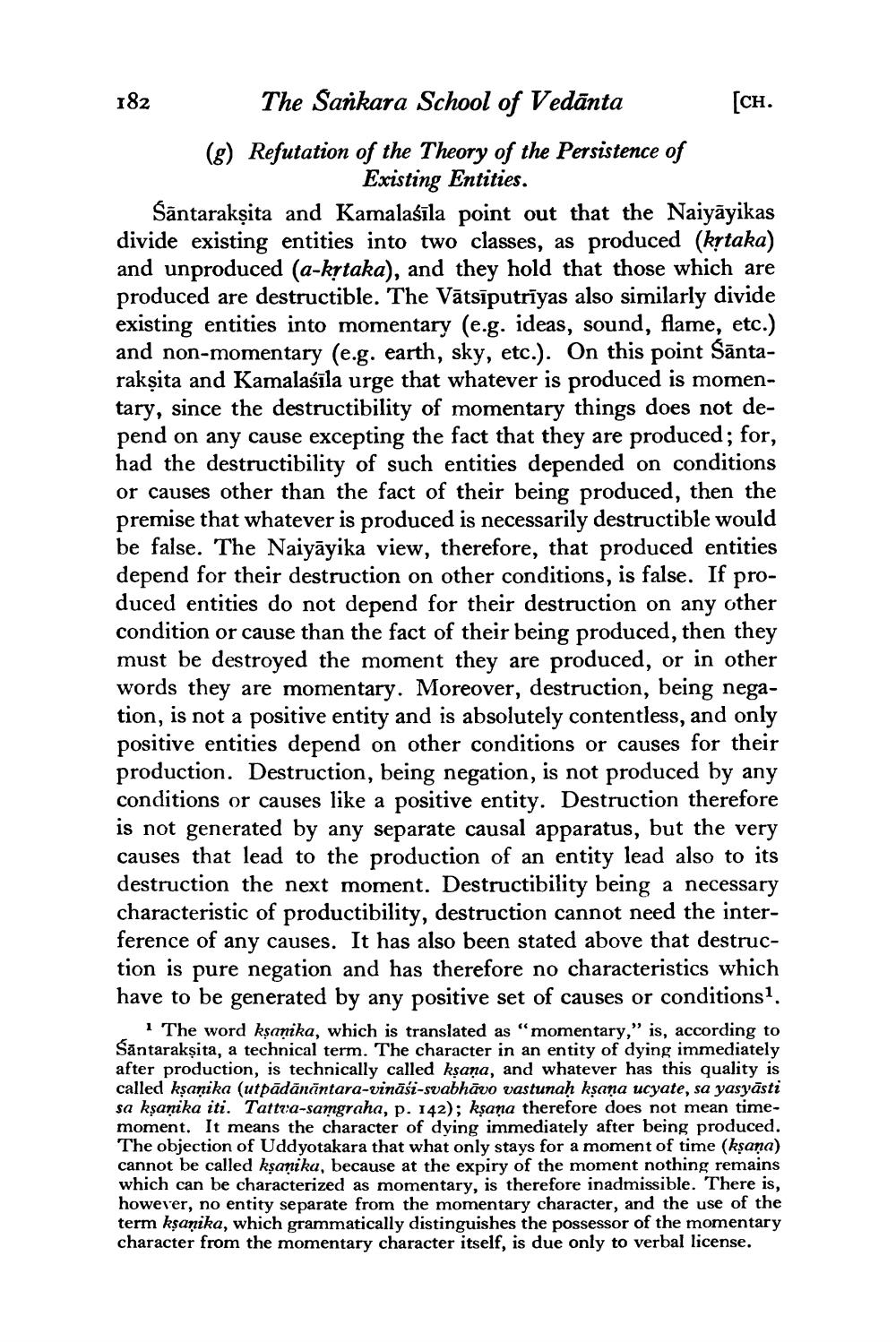________________
182
The Sankara School of Vedanta
(g) Refutation of the Theory of the Persistence of Existing Entities.
[CH.
Sāntarakṣita and Kamalaśīla point out that the Naiyāyikas divide existing entities into two classes, as produced (kṛtaka) and unproduced (a-kṛtaka), and they hold that those which are produced are destructible. The Vātsīputrīyas also similarly divide existing entities into momentary (e.g. ideas, sound, flame, etc.) and non-momentary (e.g. earth, sky, etc.). On this point Santarakṣita and Kamalasila urge that whatever is produced is momentary, since the destructibility of momentary things does not depend on any cause excepting the fact that they are produced; for, had the destructibility of such entities depended on conditions or causes other than the fact of their being produced, then the premise that whatever is produced is necessarily destructible would be false. The Naiyāyika view, therefore, that produced entities depend for their destruction on other conditions, is false. If produced entities do not depend for their destruction on any other condition or cause than the fact of their being produced, then they must be destroyed the moment they are produced, or in other words they are momentary. Moreover, destruction, being negation, is not a positive entity and is absolutely contentless, and only positive entities depend on other conditions or causes for their production. Destruction, being negation, is not produced by any conditions or causes like a positive entity. Destruction therefore is not generated by any separate causal apparatus, but the very causes that lead to the production of an entity lead also to its destruction the next moment. Destructibility being a necessary characteristic of productibility, destruction cannot need the interference of any causes. It has also been stated above that destruction is pure negation and has therefore no characteristics which have to be generated by any positive set of causes or conditions1.
1 The word kṣanika, which is translated as "momentary," is, according to Sāntarakṣita, a technical term. The character in an entity of dying immediately after production, is technically called kṣaṇa, and whatever has this quality is called kṣaṇika (utpādānāntara-vināsi-svabhāvo vastunaḥ kṣaṇa ucyate, sa yasyāsti sa kṣanika iti. Tattva-samgraha, p. 142); kṣaṇa therefore does not mean timemoment. It means the character of dying immediately after being produced. The objection of Uddyotakara that what only stays for a moment of time (kṣaṇa) cannot be called kṣaṇika, because at the expiry of the moment nothing remains which can be characterized as momentary, is therefore inadmissible. There is, however, no entity separate from the momentary character, and the use of the term kṣaṇika, which grammatically distinguishes the possessor of the momentary character from the momentary character itself, is due only to verbal license.




